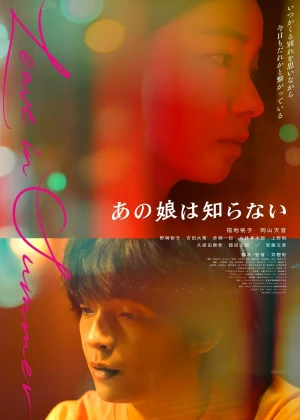Leave in Summer

Japanese cinema is best known for its kookiness in the West, but hiding underneath that zany layer of cinema is a veritable iceberg of drama films. It doesn't travel quite as well and it's mostly intended for the local market (or the odd festival), but that doesn't mean there isn't some interesting to be found there. Aya Igashi's Leave in Summer [Anonko no Shiranai] didn't look that special on paper, so I'm not surprised it made no noticeable impact on the international market, but peer beyond its meager plot description and you'll find an impressive film.
![screencap of Leave in Summer [Anonko no Shiranai]](/thumbs/img/articles/1200xauto/leave-summer-1.webp)
Igashi is one of the women who participated in the 21st Century Girl anthology, and slowly some of these directors are starting to make a name for themselves (Yuki Yamato also presented a short there). It's good to see more female Japanese directors coming to the front, especially when they illustrate that they're well capable of delivering polished, stylized films. Not that Leave in Summer competes with the likes of Mika Ninagawa but the presentation is unequivocally part of the experience here, and it's crucial in giving a bit of extra shine to what is otherwise a pretty simple film.
At least at heart, Leave in Summer is a romance, but that doesn't necessarily mean it adheres to the genre cliches. If you're expecting a sudden encounter between two people who'll end up growing closer to each other through trial and tribulation you might end up pretty disappointed. There's a lot more to their relationship, which is why it's better to think of this as a core drama, even when it's built around love and lost lovers. It's a fickle balance, and not everyone will appreciate the direction this film takes, but it does help set it apart from many others.
Nana is preparing for the small hotel she works for to open its doors the next day when suddenly a young boy appears on her doorstep. He is revisiting the last days of his girlfriend, who died in this little seaside town exactly one year ago. She stayed at the hotel, Nana is sympathetic to his situation and decides to let him stay the night. Nana herself is still dealing with the death of her parents, who died in a traffic accident and left her an orphan. She decides to give the boy a little tour around town, hoping to find people who remember his girlfriend.
![screencap of Leave in Summer [Anonko no Shiranai]](/thumbs/img/articles/1200xauto/leave-summer-2.webp)
The Japanese seaside is pretty idyllic, and Igashi makes excellent use of these beautiful surroundings. It's the extremely crisp cinematography and the stark use of color that leaves a bigger impact though. The colors are slightly saturated and make the film feel even more summery, the beautiful framing and pointed editing help to seal the deal. It's not the type of beauty that can be easily captured in mere screenshots, but that's exactly why cinema is such a special medium. Leave in Summer doesn't have any spectacular visuals, but it still manages to look ravishing.
The soundtrack is similarly impressive. It doesn't have the most outspoken choice of music, but it is very present and perfectly in tune with the visuals. It's another perfect example of how to make a strong, positive impact without the need to reinvent the wheel. People familiar with Japanese dramas will know what to expect (i.e. soft string and piano-based tunes), and sure enough, I wouldn't have minded a slightly more adventurous score myself, but the music does its job extremely well and it's essential in grounding the film's beautiful atmosphere.
A film like Leave in Summer needs strong leads to succeed, luckily they both deliver. Fukuchi Momoko has a very innocent-like charm (she also looks quite a bit younger than her actual age), Okayama Amane is a tad more mysterious, but also quite soft in his behavior. There's obvious chemistry between the two, and they add plenty of nuance to their characters, so it's not immediately clear how their relationship will develop. The supportive cast is solid too, with a notable appearance by Suwa Taro, but their parts are all rather small and secondary to the two leads.
![screencap of Leave in Summer [Anonko no Shiranai]](/thumbs/img/articles/1200xauto/leave-summer-3.webp)
Leave in Summer is a film about two like-minded souls meeting each other by chance. They find comfort in each other's presence while they get to know one another, but it doesn't necessarily lead to a token romance. Both are trying to deal with the loss of loved ones and they help each other get past some bottled-up feelings. Their relationship develops naturally though, not according to the laws of the common film plot. It's a wise decision that makes for a more mature film, even though it doesn't necessarily give you the climax you're typically hoping for.
Aya Igashi establishes herself as a director to watch with this one. In the hands of someone else, this could've been a decent but somewhat tepid drama, thanks to the direction of Igashi, the fine audiovisual presentation, and some strong performances by the two leads, Leave in Summer is a film that stands as one of the better Japanese dramas I've seen. Availability may pose a problem, but fans of the genre will no doubt know how to circumvent any arbitrary distribution issues. It's nice to see there are still worthwhile films being made in this niche.